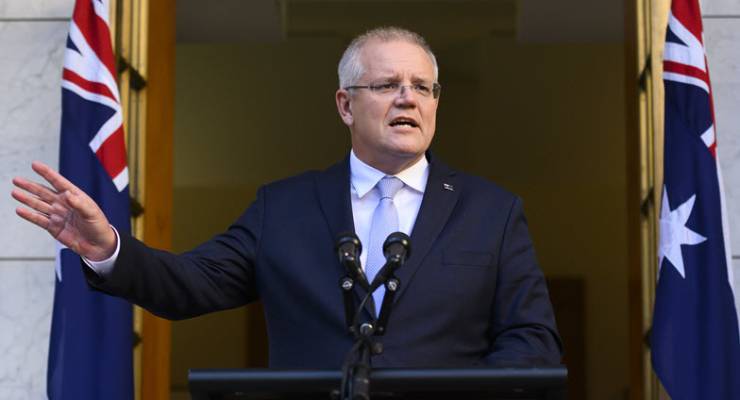
This week Scott Morrison responded to Greta Thunberg’s UN speech by wistfully opining that we should let “kids be kids”. It was unclear from his statement what kind of kids he wants kids to be — presumably not the kind who inspire hundreds of thousands of people to take to the streets.
The PM said he wants children growing up in Australia to feel positive about their future, and spruiked the way he speaks to his own daughters about climate change. “We don’t have deep conversations about emissions reduction targets and what’s happening with the Kyoto protocol and Paris”, he said, “but we talk about fossil fuels and we talk about what they learn at school, and I encourage them to have a passionate independent view about how they see the world, but I also give them a lot of context”.
“We’ve got to let kids be kids. We can’t have them growing up as mushrooms, but we’ve got to get a bit of context into this.”
Morrison did not explain how he, or other parents and caregivers, should provide that context for children and young people. So Crikey asked Professor Louise Newman AM, a child psychiatrist from the University of Melbourne, for her thoughts on the PM’s statement.
“Children and adolescents are currently expressing concerns about climate and the impact on their future,” she said.
“They are following the issues and raising issues about the government not taking their generation’s anxieties into account and essentially dismissing them with the implication they are being set up or manipulated by adults for particular political purposes. This is largely inaccurate and we know historically that the voice of youth has driven discussion about social issues and change.”
When asked if Morrison’s “let kids be kids” exhortation was particularly useful from a clinical point of view, Newman didn’t think so.
“A few young people will experience high levels of distress — dealing with this includes supporting them in constructive action and debate. Being dismissive can make this worse.
“The PM is implying that children do not have independent capacity for opinions and dismissing their concerns. He is adopting a patronising and unhelpful approach rather than seeking dialogue.
“As a child psychiatrist I am aware of quite young children from age five or six who are aware of fire, drought and related issues. They are potentially impacted by this and politicians need to reflect on the social consequences of a generation who lose faith in the capacity of government to act and protect.”
Newman went on to say that statements about Thunberg’s mental health by others, including Australian psychologist Michael Carr-Gregg, were problematic as well.
“…[I]n my opinion it is irresponsible for psychologists or psychiatrists to make a diagnosis of persons they have not assessed.”
At the time of publishing, it remains unclear if Morrison holds similar concerns for Sir David Attenborough’s climate anxiety. Perhaps we should let nonagenarians just be nonagenarians, too.








the father of Morrison’s spiritual mentor didn’t let kids be kids. Morrison mentor failed to report the abuse and so didn’t let kids be kids. Morrison is proud of locking kids up in concentration camps and not letting kids be kids. What they all want is silent compliance from kids.
Since the kiddies are particularly worried that the Prime Minister is lying to them about climate change, what say he makes climate denial illegal? Starting to put all the bad guys in jail might begin to reassure the kiddies that the government is on their side.
Nice though Roger.
Oh Rebekah. We are in a really deep hole when if good journalists start engaging in analysis of what the Prime Muppet means. It is simple. He is a vacuous moron devoid of meaning. Let not analysis create the impression that he has anything useful to say, especially after the debacles of the Pacific Island Forum and his arse-licking trip to the US.
Why????
Kids having anxieties about the future is not exactly new. Consider kids world wide growing up in the 1950s, 60s, 70s and 80s with the threat of global nuclear war. And that threat is not so gradually returning.
If Morrison wants to pontificate on how kids should behave while giving a back-handed slap to their parents, perhaps he should change creed and move to the Vatican. He’d do well there! They too have a history of little or no respect for scientific knowledge….nor children.